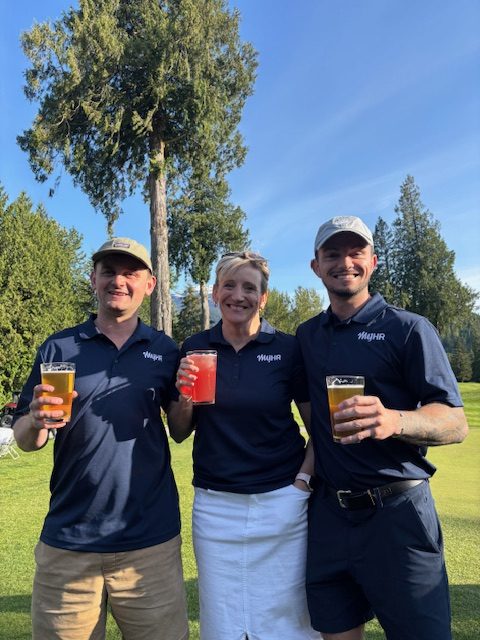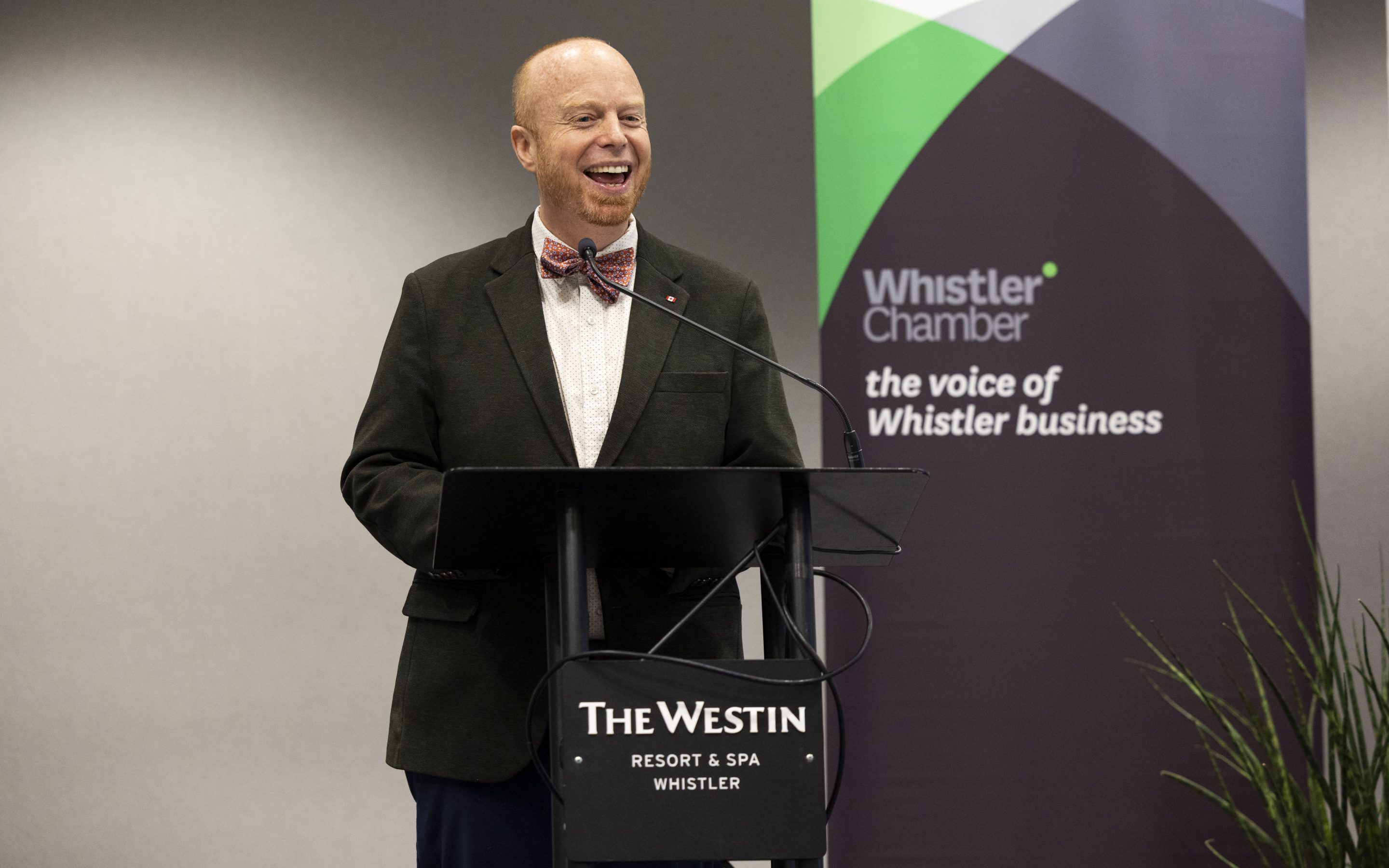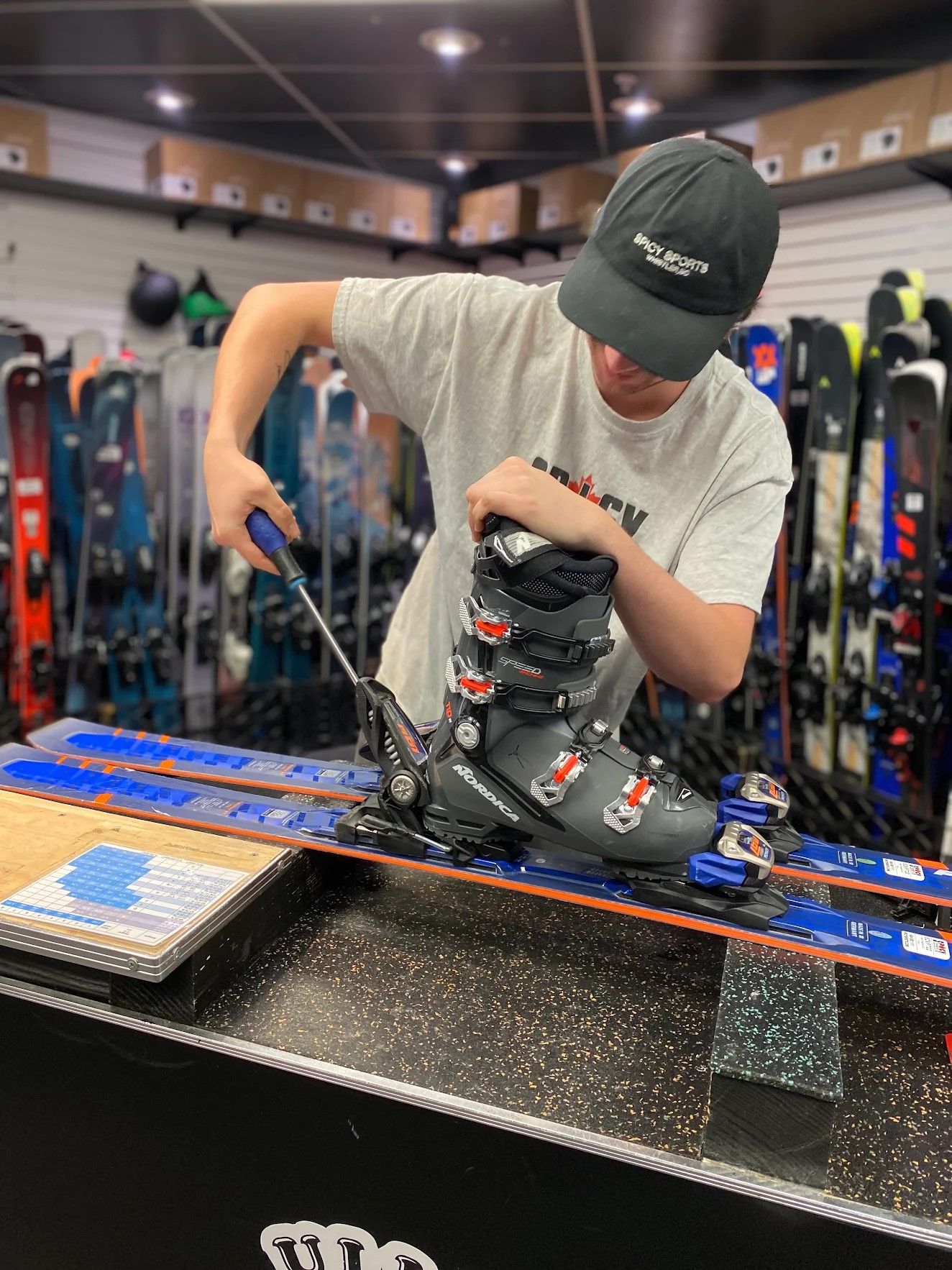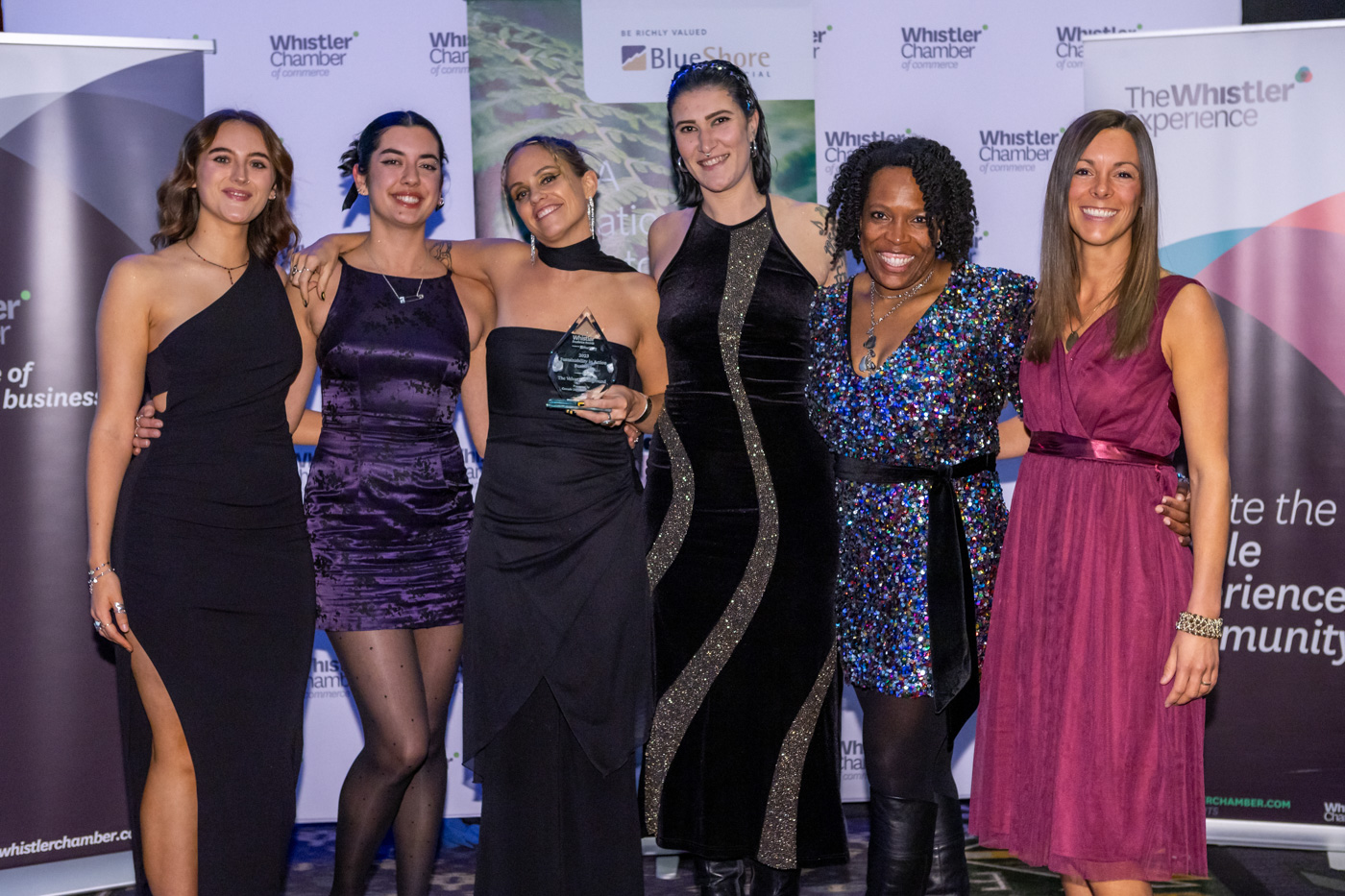
VIRTUAL EVENT SUMMARY
COVID-19 Whistler Business Support Sessions
November 19, 2020
Yesterday, the Whistler Chamber, in partnership with the Resort Municipality of Whistler (RMOW), hosted our pilot Virtual Meetup: COVID-19 Whistler Business Support Sessions. We were joined by business owners and managers for a series of conversations in support of making business better for Whistler, bringing the Community of Practice together virtually to learn from one another around the most critical challenges facing small businesses in Whistler. Sectors represented included retail, food & beverage, accommodation, activities, transport, and health and wellness.
Attendees took part in 2 out of 4 available breakout sessions on the topics of technology, safety, HR and financials, and had the opportunity to speak with and learn from experts on their chosen topics. Below is a brief summary of some key issues that came out of the discussions, as well as some of the resources mentioned by businesses and the expert facilitators during the various sessions.
Finance
presented by Theresa Walterhouse, Partner, BDO
This finance session was designed to help businesses navigate the intricacies of the Canada Emergency Wage Subsidy (CEWS), and other government supports that can be leveraged by Whistler businesses. Theresa highlighted resources from the Government of Canada regarding changes to taxes and benefits and Canada’s COVID-19 Economic Response Plan.
Theresa shared some highlights of CEWS 3.0 (replacing periods 8 – 10):
- Wage subsidy has been extended to June 2021 – more information coming soon
- Max. base subsidy will remain constant for Periods 8 – 10 – At 40% for 50% revenue decline (or 80% of revenue decline if < 50%)
*plus potential top-up subsidy of 25% (max. of 65% at 70% revenue decline) - Revenue decline test approach for base subsidy and top-up subsidy are now harmonized into one calculation
– so no more 3 month average calculation unless you use NEW Safe harbor rule for Periods 8-10 - New rent subsidy uses same revenue calculations and same subsidy rates as CEWS 3.0 – although different applications
- Can apply to ALL rent paid to arm’s length parties or costs of property ownership such as mortgage interest, property taxes, etc.
- Max. eligible expenditures of $75,000 per month per location or $300,000 all locations combined
- Additional 25% lock up subsidy if forced to close by health orders (no cap)
- All subsidies are taxable in the month of the last day of subsidy period
BDO has 3 Tax alerts that provide further details on these two subsidies (subject to Royal Ascent pending at time of release) and the Canada Emergency Business Account:
- Tax Alert: Canada Emergency Business Account (CEBA)
- Tax Alert: Canada Emergency Wage Subsidy (CEWS)
- Tax Alert: Canada Emergency Rent Subsidy
BDO also have a useful summary of all federal and provincial programs (and tax deferrals) as of the date of the presentation. The BDO COVID-19 Resource Centre is another valuable resource.
HR + Health & Wellness
presented by Tess Evans, Owner, HR Galaxy
In this session the group discussed the importance of investing in mental health programs to help support their teams.
Data collected by Deloitte Insights showed a direct return on investment when owners/managers invest in employee well-being. The study showed the following conclusions:
- 500,000 Canadian employees per week are unable to work due to poor mental health
- Estimated economic cost of poor mental health in Canadian workplaces is $50 billion annually
- This does not include an additional $6.3 billion in lost productivity
- The report states that 1/3 of Canadian companies have a mental health strategy
Deloitte’s report found that the first step was to provide leadership with training on how to identify issues before they arise. A proactive approach is what pays off!
Canada has voluntary guidelines called The National Standard of Canada for Psychological Health and Safety in the Workplace, known as the Standard. It was established in 2012 by the government-mandated Mental Health Commission of Canada as a framework to help organizations promote mental wellness and prevent psychological harm at work. It’s important for employers to know they don’t have to “start from scratch” because the Standard outlines a step-by-step guide based on best practices. No company needs to fully adopt the Standard in its entirety all at once. It’s a process, and they can make incremental improvements over time.
Tess also shared resources for mental health in the workplace, for building stronger, happier remote teams, and ideas for creating a wellness page for your team. She also reiterated the importance of Whistler Community Services Society and more organisations such as Sea to Sky Healing Project, Mental Health Commission of Canada and Whistler First Aid.
Safety & Expectations
presented by Erin Marriner, Corporate Coordinator, and Miriam Bougie, Director for HR, Resort Municipality of Whistler
This session was designed to help small businesses enhance their COVID-19 safety plans, to minimize the risk of transmission of COVID-19 within staff and customers. This included an overview of general COVID-19 safety requirements for businesses, as well a summary of initiatives currently in motion in Whistler such as the Village Walk through Program.
The presenters reiterated the need for all businesses to revisit their COVID-19 safety plans, noting that WorkSafe BC’s COVID-19 Safety Plan should be your master document. Safety plans should be constantly reviewed as things evolve.
Discussion also centred around the layers of protection: eliminations of risk, engineering and physical barriers. Engineering considerations include installing plexiglass shields, and reconfiguring workspaces. Other considerations being where can you increase distance and how can you reduce contact time.
Daily Health checks are now required at all businesses – we have to demonstrate that we’re doing it. No one should be allowed on worksite without it. It is important to note that employee health records are private, and individual medical records are private and confidential. Vancouver Health does contact tracing and has resources for employers who have a positive case within their business.
In terms of business success, it can be a competitive advantage for you to communicate what you are doing in your safety plan, as this promotes consumer confidence.
The RMOW also shared this 2 pager on COVID19 Guidance and Support for Whistler Businesses, as well as the COVID-19 business best practices page.
Technology
presented by Ryan Donohue, Emergency Program Coordinator, Resort Municipality of Whistler
This session provided insight into how technology can be utilized in businesses across Whistler to support COVID-19 mitigation strategies, including managing lineups and facilitating contact tracing. The session included examples of different technology platforms, which showcased how technology can easily be leveraged by Whistler businesses.
The COVID-19 crisis seemingly provides a sudden glimpse into a future world, one in which digital has become central to every interaction, forcing both organizations and individuals further up the adoption curve almost overnight. The RMOW shared how they adapted quickly using:
- Virtual EOC- creating a shared database for COVID- Sharepoint
- Training and personnel platform- D4H to identify employees with Emergency Operations Centre training and other certifications
- Communications- utilizing cloud based platforms for direct conference calling and online meetings- Zoom and Connect Rocket
- Online registration of programs- PerfectMind for booking recreation activities at Meadow Park
- Remote workforce- use of Virtual Private Networks( VPN’s)Sonicwall and remote workstations
The overarching theme was that “now is the time to reassess digital initiatives—those that provide near-term help to employees, customers, and the broad set of stakeholders to which businesses are increasingly responsible and those that position you for a post-crisis world. In this world, some things will snap back to previous form, while others will be forever changed. Playing it safe now, understandable as it might feel to do so, is often the worst option.” Whistler businesses must adapt to new technologies now, and move with the changing consumer expectations, or risk being left behind.
Simple technology solutions that businesses can utilise include things such as QR (Quick Response) codes for things like menus. Moderate solutions such as technology like Wait offers, can allow customers to sign up on a virtual waitlist. This prevents physical line ups outside and establishment complying with physical distance requirements, while also providing patrons with a better guest experience as they are free to do other activities. Advanced solutions like Tock offer safe reservation, table, and guest management systems, pickup and delivery, waitlist and walk-ins, contactless ordering and payment, ticketed tours, events and experiences and more.
Finally, the group discussed the importance of Whistler creating a unified guest experience across the resort, by using the same technology throughout resort businesses.

Member Spotlight: MyHR
MyHR isn’t your usual human resources company. This business offers expert human advisory services, all backed by advanced AI and actual expert humans, and all ready and easy to use on one simple platform. From onboarding and performance reviews to insights,...

What You Missed at the State of the Municipality lunch
The Whistler Chamber of Commerce hosted the State of the Municipality with Mayor Crompton, presented by Capilano University on March 19 at the Westin Resort & Spa. This was an opportunity for the business community to attend to hear updates from the Mayor,...

What is gender diversity training and why does your business need it?
It’s 2025, and understanding and accepting gender diversity is more important than ever. According to Statistics Canada, 1 in 300 people aged 15 or older are transgender or non-binary. That’s just over 100,000 people across Canada. Despite the relatively small numbers...

Member Spotlight: Spicy Sports!
We all know and love Spicy Sports, one of Whistler’s locally owned and operated rental stores. Skis and boards through winter, and bikes through summer, this is a go-to for picking up the gear you need to get out and enjoy Whistler’s outdoors. But how well do...

From Waste to Action: 5 Ways Businesses Can Cut Costs by Reducing Food Waste
Guest blog from AWARE Whistler Food waste isn’t just bad for the environment – it’s bad for business. In British Columbia, food retailers and food service businesses lose an estimated $1.3 billion worth of food each year. Every item thrown away – whether it's expired...

Member Spotlight: Reactive Design
Reactive Design is a fantastic local business that offers professional video & drone work, photography, and production services. It’s headed up by Chris Granicolo and Marc Dionne, two extremely talented locals who are often to be found out capturing...

18 Awesome Women-Owned Businesses in Whistler
It’s been just 45 years since Dolly Parton’s award-winning, toe-tapping, ground-breaking 9 to 5 was released, showcasing women in business and paying homage to 9 to 5, the National Association of Working Women. In that one short lifetime, women in business have...
